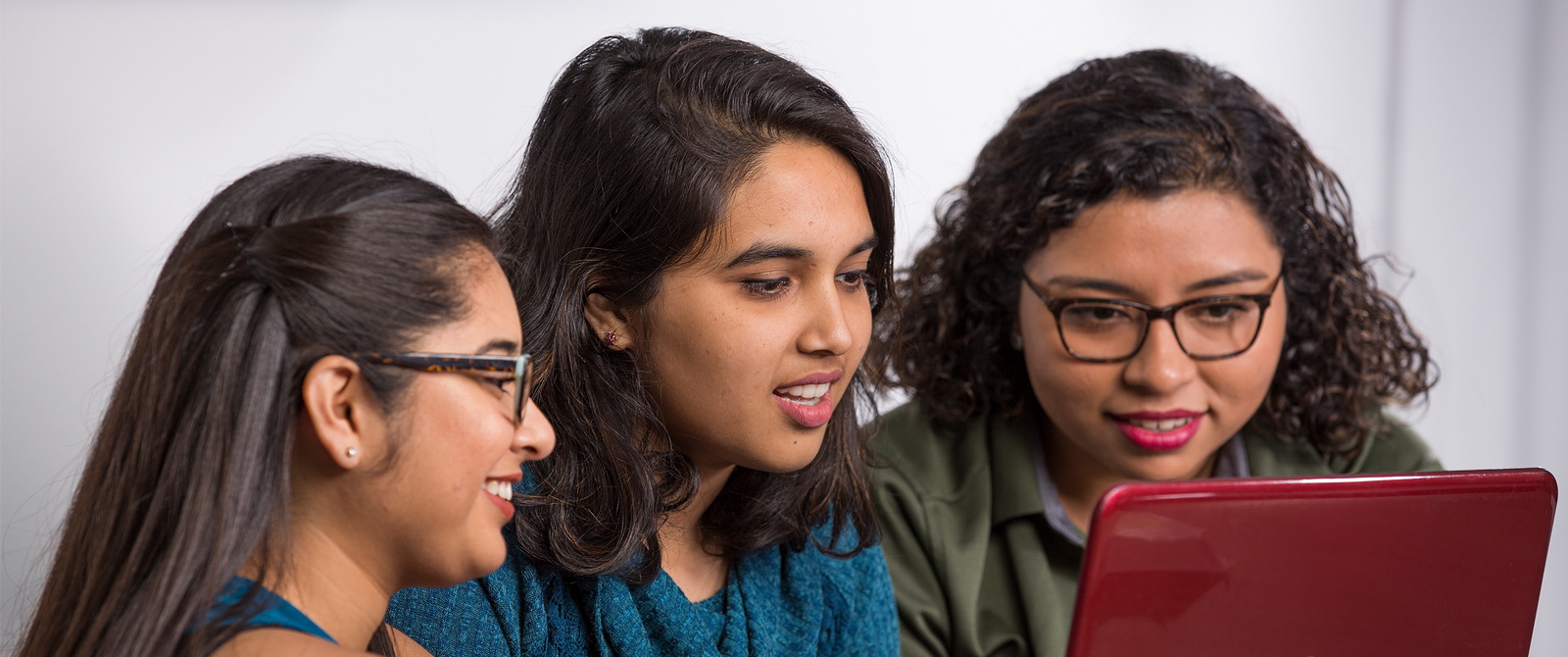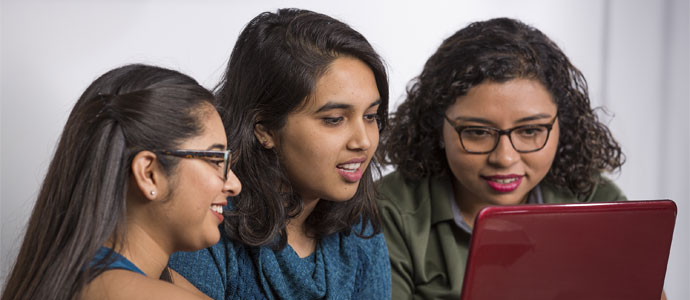Apply for Disability Services
Application Process with the Office of Accessible Education Center:
- Step 1: You must be enrolled and registered for classes at the University of Houston-Downtown.
- Step 2: Visit uhd.edu/disability and click the apply for services tab. Submit your application.
- Step 3: Attach your required documentation to your application. View Documentation Guidelines
- Step 4: Wait for your application to be reviewed.
- Step 5: Attend your intake meeting.
Registering with the Accessible Education Center
According to the Americans with Disabilities Act (ADA), a disability is a physical
or mental impairment that substantially limits one or more major life activities,
such as caring for one's self, performing manual tasks, walking, seeing, hearing,
speaking, breathing, learning and working. In order to receive assistance from ODS,
the student must have a documented disability.
Students seeking to register with the Accessible Education Center must provide disability-related
documentation from an appropriate licensed professional (details of documentation
requirements are provided to each student by Disability Services and available on
the Documentation Guidelines tab).
The submitted disability-related documentation should clearly identify the nature
of the disability, as well the effects of the disability on a student's daily functioning.
This documentation will allow the Accessible Education Center staff to determine appropriate
and reasonable academic adjustment/auxiliary aids. After submitting the documentation
(whether adequate or inadequate), Accessible Education Center will contact the student
to either schedule an appointment/interview or request additional information.
Follow
javascript: SP.SOD.executeFunc('followingcommon.js', 'FollowDoc', function() { FollowDoc('{ListId}',
{ItemId}); });
0x0
0x0
ContentType
0x01
1100
Compliance Details
javascript:if (typeof CalloutManager !== 'undefined' && Boolean(CalloutManager) &&
Boolean(CalloutManager.closeAll)) CalloutManager.closeAll(); commonShowModalDialog('{SiteUrl}'+
'/_layouts/15/itemexpiration.aspx' +'?ID={ItemId}&List={ListId}', 'center:1;dialogHeight:500px;dialogWidth:500px;resizable:yes;status:no;location:no;menubar:no;help:no',
function GotoPageAfterClose(pageid){if(pageid == 'hold') {STSNavigate(unescape(decodeURI('{SiteUrl}'))+
'/_layouts/15/hold.aspx' +'?ID={ItemId}&List={ListId}'); return false;} if(pageid
== 'audit') {STSNavigate(unescape(decodeURI('{SiteUrl}'))+ '/_layouts/15/Reporting.aspx'
+'?Category=Auditing&backtype=item&ID={ItemId}&List={ListId}'); return false;} if(pageid
== 'config') {STSNavigate(unescape(decodeURI('{SiteUrl}'))+ '/_layouts/15/expirationconfig.aspx'
+'?ID={ItemId}&List={ListId}'); return false;} if(pageid == 'tag') {STSNavigate(unescape(decodeURI('{SiteUrl}'))+
'/_layouts/15/Hold.aspx' +'?Tag=true&ID={ItemId}&List={ListId}'); return false;}},
null);
0x0
0x1
ContentType
0x01
898
Academic Adjustments & Services
Academic adjustments are adjustments to academic environments, including facilities,
services, and equipment, that allow students to have equal access to their academic
program and equal opportunity to pursue their academic goals. These adjustments include,
but are not limited to:
- Assistive listening devices
- Sign language interpreters
- Extended time for examinations or assignments
- Specialized computer software
- Alternative media
- Assistance with lecture notes
- Adaptive equipment
- Alternative examination strategies
- Disability related counseling
- Advocacy services
Follow
javascript: SP.SOD.executeFunc('followingcommon.js', 'FollowDoc', function() { FollowDoc('{ListId}',
{ItemId}); });
0x0
0x0
ContentType
0x01
1100
Compliance Details
javascript:if (typeof CalloutManager !== 'undefined' && Boolean(CalloutManager) &&
Boolean(CalloutManager.closeAll)) CalloutManager.closeAll(); commonShowModalDialog('{SiteUrl}'+
'/_layouts/15/itemexpiration.aspx' +'?ID={ItemId}&List={ListId}', 'center:1;dialogHeight:500px;dialogWidth:500px;resizable:yes;status:no;location:no;menubar:no;help:no',
function GotoPageAfterClose(pageid){if(pageid == 'hold') {STSNavigate(unescape(decodeURI('{SiteUrl}'))+
'/_layouts/15/hold.aspx' +'?ID={ItemId}&List={ListId}'); return false;} if(pageid
== 'audit') {STSNavigate(unescape(decodeURI('{SiteUrl}'))+ '/_layouts/15/Reporting.aspx'
+'?Category=Auditing&backtype=item&ID={ItemId}&List={ListId}'); return false;} if(pageid
== 'config') {STSNavigate(unescape(decodeURI('{SiteUrl}'))+ '/_layouts/15/expirationconfig.aspx'
+'?ID={ItemId}&List={ListId}'); return false;} if(pageid == 'tag') {STSNavigate(unescape(decodeURI('{SiteUrl}'))+
'/_layouts/15/Hold.aspx' +'?Tag=true&ID={ItemId}&List={ListId}'); return false;}},
null);
0x0
0x1
ContentType
0x01
898



